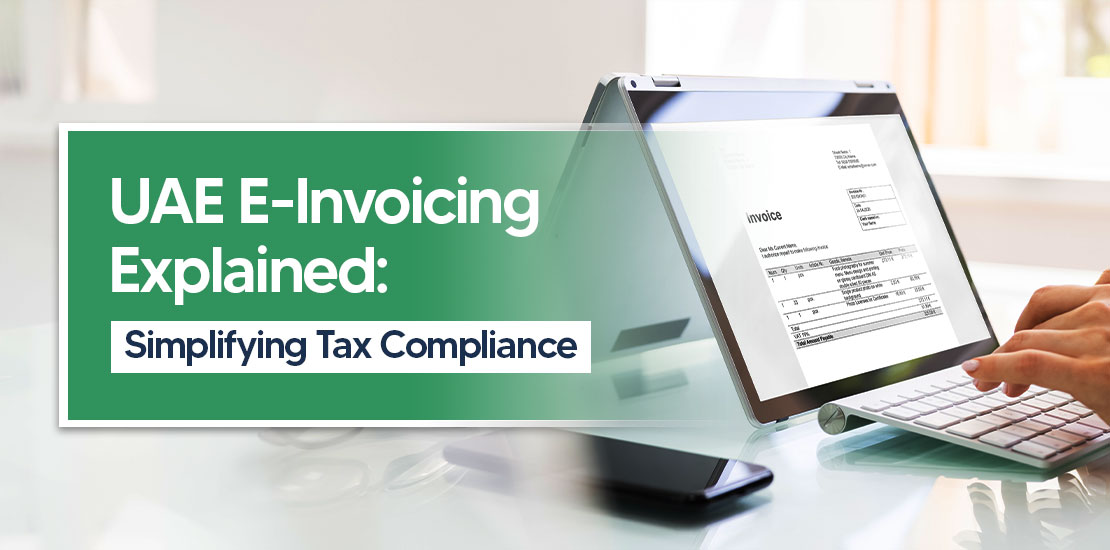Starting a business in Dubai or the UAE is a dream come true for many. And why not? The UAE is touted as one of the best places globally to start a business, all thanks to the advanced infrastructure, seamless connectivity to the rest of the world, access to the national and international market, high standards of living, and more. The list could go on and on.
In fact, the International Monetary Fund (IMF) has recently revised its forecast for the UAE. According to the latest reports and revisions, the United Arab Emirate’s GDP is forecasted to grow at 5.1% this year. The earlier forecast predicted it to grow at 4.2%. But why are these figures so important? That’s because this is UAE’s highest growth in the past 7 years! That’s quite something, isn’t it?
Although the booming economy of the UAE entices thousands of entrepreneurs and businessmen – new and already established- you must take care of several things as a business owner. And one of them is accounting.
Typically, maintaining accounts and books is a tedious process. Not to forget the daunting tasks like filing returns and paying taxes. Unfortunately, one cannot simply let it be. You must be on top of your accounts and bookkeeping to ensure you have a viable financial plan for your business.
Although you could do it within the company, why not outsource it to an expert while you focus on other activities that directly impact your income? Want to know how? Keep reading. This blog will walk you through all you need to know about outsourcing your accounting.
Why Must Startups Pay More Attention to Accounting?
Any business’s survival depends on accurate bookkeeping and accounting, but you might need to keep more records as a startup. But Why?
Because your investors may need to see the records for evaluation. Furthermore, potential investors may need it to make an educated decision about investing in your business. Finally, a transparent and simple-to-read financial record will play a significant role in helping you get a loan if needed.
While you may manage accounting and bookkeeping in-house by hiring accountants and related individuals, outsourcing the job will give your team more time to proactively work on other productive activities. For instance, marketing, sales, customer retention, enhancing customer experience, product launches, and more.
What Should You Do To Make Accounting and Bookkeeping Simple?
1. Always Transact via a Bank
All of your commercial dealings should be done regularly through the bank. It is simple to keep track of spending when the transactions are being recorded. You can track inflows and outflows using your bank statement. You can use this to compute your taxes and file them. Follow practice of mentioning transaction descriptions during online banking.
2. Leverage Technology
Utilizing technology to simplify your company’s accounting procedures is a must-do. You can leverage software like Xero, Zoho, QuickBooks, and Tally for assistance in tracking and monitoring your financial actions. Additionally, you can use cloud-based applications.
They not only reduce the mundane nature of the job but also eliminate human error. Additionally, since the data is stored in the cloud, it is accessible from anywhere worldwide, making it flexible to work with.
3. Stick to a Schedule
Make a schedule for the computation and audit of taxes. Experts may also be recruited to perform tax audits and examine other paperwork, like certifications and bills. Furthermore, the financial checks should take place without prior notice. This allows you to check economic activity and ensure that there are no fraudulent actions within the company.
Also, sticking to a schedule will help keep your books updated. The FTA can barge into your office at any moment for a check. As a result, you should be ready to give them your tax returns and other related documentation.
4. Plan for the Future
Any unclear circumstances could jeopardize the success of your business and significantly slow down sales, manufacturing, and other business operations. Getting ready for such events is absolutely essential.
Therefore, ensure to assess the dangers. You may want to set out an emergency fund to keep your company in operation for 3-6 months rather than investing everything into future projects. And for this, you must have a proper accounting process with complete financial analysis tools.
How To Choose an Outsourcing Partner?
Deciding to outsource your accounting process is in itself a huge step. Another big step is to decide who to outsource it to because this is the decision that will make or break your accounting process. But worry not.
Here is a checklist to help you choose the best outsourcing partner for accounting –
1. They Fit Your Scope of Outsourcing
To determine whether a certain accounting firm or consultancy meets your scope, you will first have to list down all the tasks you want to outsource. Next, ask yourself – is this a part of my expertise? If not, it’s best to outsource it.
Then match it with the services your accounting partner is offering to you. Do these tasks fall under their area of expertise? If yes, they are likely to be a good fit.
2. They Are Highly Recommended
Ask your friends and business competitors about the accounting firm they have partnered with. Discuss the firm you are planning to partner with. Collect as much information as you can about the prospective firm. You may even ask your prospective partner about their testimonials and the companies they are currently or have worked with. Contact these listed companies and discuss their experience. If there is consistency between the recommendations and reviews, they may be a good fit.
3. Ask Questions
Your accounting partner must be well-versed in accounting principles. Furthermore, they should know how to overcome complex accounting issues and loopholes. And to know about their expertise, it’s best to ask as many questions as possible. Following are some of the questions you can ask –
- Will you thoroughly reconcile payroll, sales tax, bank, and other items?
- Do you accept customer records in any format?
- Will you provide me with a thorough analysis to inspect the accounts?
- Will you review the accounts to look for inaccurate income/expenditure calculations made by my clients?
- How do you safeguard data while adhering to rules?
4. Check If They Are Using the Latest Technology and Infrastructure
Looking at the outsourcing partner’s software, employment, and infrastructural skills is always a good idea. They must be able to find the resources required to complete your assignment.
Spending a couple of weeks with your partner could be beneficial to understand their work ethics and culture firsthand. Participate in their activities, attend staff meetings, and communicate with your wider team.
5. Know Your Service Provider
It’s vital to know your service provider in and out. Ensure you check the corporate profile, experience and qualification of the key personnel and whether they have experience in handling your industry’s financials. Finally, check if they are updated with the latest tax and legal compliances in the UAE.
Outsource Your Accounting to Shuraa
To summarize, it’s important to see whether your accounting outsourcing partner meets your needs, has a good reputation, is skilled and well-versed in the field, and is up to date with the latest practice. With Shuraa Tax Consultancy, you won’t have to worry about all this.
Our tax accountants are the best in the field and will meet all your needs. We are also well-equipped to ensure that your company is tax and accounts-compliant. Our in-house tax-registered tax agents will offer your overall support, including filing your VAT returns. All you need to do is reach out to us at info@shuraatax.com or call us at +971 508912062













